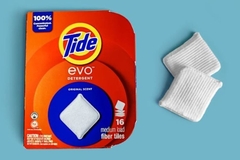Clean beauty survey shows US shoppers seek sustainable solutions over plastic waste concerns

30 May 2024 --- CleanHub’s recent survey of 500 Americans examines the popular clean beauty movement, revealing consumer attitudes to sustainable cosmetics, beauty waste and key trends shaping markets in the third quarter of 2023.
The organization aims to end the “plastic problem” and explains that clean beauty refers to sustainable, safe and non-toxic cosmetic and skin care products. Consumers expect brands in this sector to be transparent about ingredients and commit to environmental responsibility.
#CleanBeauty has amassed over 1.9 billion views on TikTok and 6.1 billion tags on Instagram. However, CleanHub flags that 120 billion units of beauty plastic packaging are disposed of annually, and 18 million acres of forest are lost annually due to the cosmetics industry.
Based on the survey, consumer behavior data shows that 63% look for products with natural ingredients that benefit the skin and the planet. Forty-nine percent of respondents are paying more attention to beauty product sustainability, including packaging, and 18% have discarded beauty product packages that were recyclable but difficult to clean.
Moreover, 69% of respondents believe beauty brands should be more active in promoting eco-conscious behavior among their customers.
Market insights on sustainable cosmetics
The collective finds that 63% of consumers consider clean beauty “extremely or very important” when selecting cosmetics. “I would like to hear more from brands about the actions they are taking. Perhaps a specialist environmental newsletter,” says a respondent.
.jpg) Watch our video interview with Brixy, which removes plastic packaging from its skin care bars.Innova Market Insights data indicates a steep increase in environmentally sustainable claims for personal care, featuring a +9% year-over-year growth from October 2021 to September 2023. Skin Care was the leading category, and 74% of launches had a sustainable packaging claim. The top sustainability claims in personal care launches were Ethical – Animal/Fish & Bird, Ethical – Packaging and Ethical – Human.
Watch our video interview with Brixy, which removes plastic packaging from its skin care bars.Innova Market Insights data indicates a steep increase in environmentally sustainable claims for personal care, featuring a +9% year-over-year growth from October 2021 to September 2023. Skin Care was the leading category, and 74% of launches had a sustainable packaging claim. The top sustainability claims in personal care launches were Ethical – Animal/Fish & Bird, Ethical – Packaging and Ethical – Human.
Moreover, data indicates a +44% average annual growth in product launches with plant-based claims from October 2018 to September 2023. Beauty and personal care launches tracked with natural and organic claims grew by 9% between July 2017 and June 2022. Europe led the way at 61%.
Consumer crackdown
Consumers are focused on clean ingredients and evaluate a brand’s overall environmental and social impact before buying. While 70% of consumers investigate a company’s eco-credentials, only 15% never check a brand’s sustainability claims.
Some say brands should offer “discounts for environmentally responsible products,” and also “donate a portion of the proceeds to environmental charities and organizations.”
Over half of buyers are skeptical about clean beauty claims, even with an emphasis on sustainability.
Before making a purchase, 40% of consumers “always or usually” investigate a brand’s sustainability credentials, and 30% occasionally do so. This highlights an opportunity for brands to communicate their sustainability efforts clearly, suggests CleanHub.
A growing number check reviews from their peers and use Google searches and TikTok to check sustainability claims. Others read the packaging 61%, website 60%, social media 37%, word of mouth 24% and TrustMark 15%.
 Eighty-one percent of shoppers believe brands should actively reduce plastic packaging.Packaging focus
Eighty-one percent of shoppers believe brands should actively reduce plastic packaging.Packaging focus
The most important factors for consumers when purchasing beauty products include, in order, non-toxic ingredients, cruelty-free certification, sustainable packaging, organic ingredients, zero waste practices, environmental impact and vegan formulations.
CleanHub says 81% of shoppers believe brands should actively reduce plastic packaging. However, 47.42% are content with recyclable plastic.
Respondents showed a preference for sustainable packaging materials:
- 47% favored recyclable packaging.
- 40% preferred refillable containers.
- 39% chose glass.
- 36% selected biodegradable plastic
- 35% opted for paper and cardboard cartons.
Forty-seven percent are willing to pay for more sustainable packaging, 33% are not, and 20% say it depends.
A respondent suggested “removing packaging that is fully plastic-based (not recyclable) and only sticking to recycled materials,” along with making “more refillable items, with refills being cheaper.”
Others suggest “less excessive packaging,” “ship in smaller packages,” and “get rid of all the extra one-time samples that always come with a purchase... I want to know how my favorite beauty brands are trying to stop their products from ending up in landfills or the ocean.”
Following the clean beauty trend, K-beauty brand Innisfree recently rebranded to target trending eco-friendly practices in skin care and packaging. Personal Care Insights also spoke to Genie Supply about clean beauty in manufacturing.
By Venya Patel













